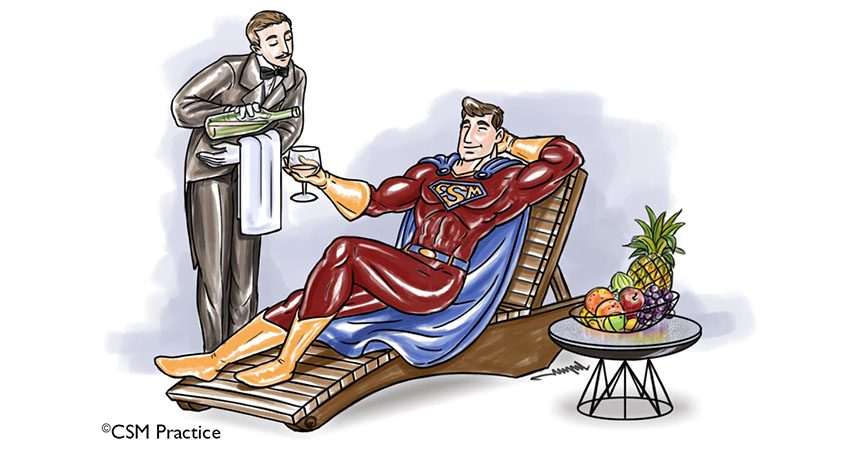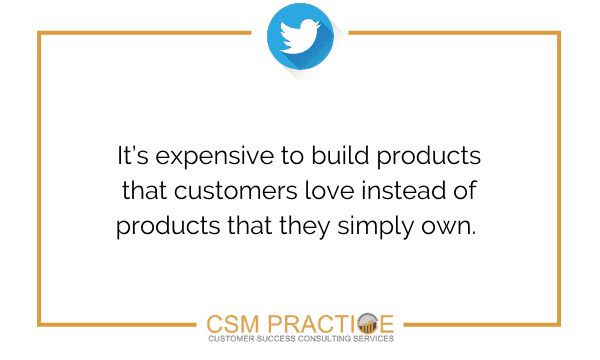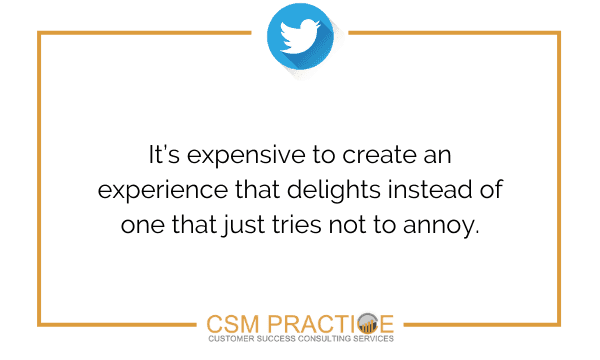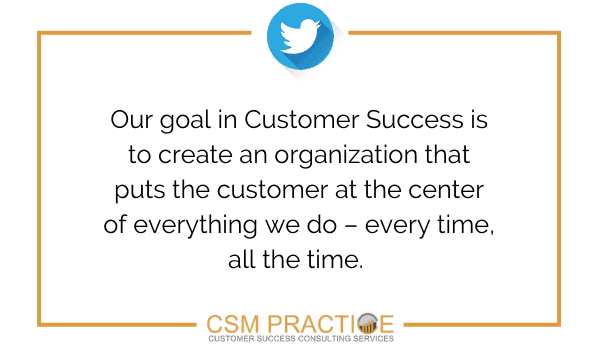The luxury industry knows what Customer Success is only just beginning to grasp!
Think of a concierge at a 5-Star resort. Not only do they know exactly what you need when you ask a question, but they also seem to know exactly what you need before you ask, or, in some cases, without you saying anything at all. And when they provide guidance or suggestions, they frame them in such a way that you feel more confident once you possess this new information.
The role of the Concierge is to make your stay not just flawless, but perfect. They’re not simply aiming for the ‘absence of mistakes,’ they want you to have the very best experience of your life.
See any parallels with Customer Success?
I’m thinking of one passage in particular from the new book Customer Success by Nick Mehta, Dan Steinman, and Lincoln Murphy. In fact, it practically leaps off of page 7:
“It’s expensive to build products that customers love instead of products that they simply own. It’s expensive to create an experience that delights instead of one that just tries not to annoy.”
This quote is part of a larger section comparing Attitudinal Loyalty to Behavioral Loyalty – the former is based on emotion and the latter is based on logic. It’s expensive to create products, solutions, and experiences that delight, but this is the only way to deliver a 10X or 100X return. Why?
Because logic alone will never lead to Customer Success
It’s tempting to think that your customer is completely rational. That they will objectively understand the value of your solution and do whatever it takes to leverage that value to help them achieve their business goals, with little guidance required on your part. If this were the case, we could all kick back and watch our product fly off the shelves without Sales or Marketing having to sweat the small stuff like qualifying, segmentation, or targeting our ideal customer. Churn – both as an event and a concept – would cease to exist.
Clearly, this is not the case, for two very simple reasons:
- We’re all dealing with incomplete information
- None of us is completely rational
Let’s return to our friend the concierge for a moment. Let’s pretend she’s at the front desk when a family comes off the elevator, dressed for the beach. They approach the concierge and ask, “Can you tell us which way to the beach?” Directly over their heads is a large sign that says, “BEACH” with an arrow pointing out the door.
Q: As an insightful concierge skilled in the values of Customer Success, what would you do?
A: Take the opportunity to cement this interaction in the minds of your guests as one of delight and premium service
Ideally, the concierge would come out from behind the front desk smiling, and personally guide the family to the beach while taking the time to learn more about their favorite water activities. It doesn’t matter that there was a large sign directly over their heads when they asked the question – the sign plays to their logic while the concierge plays to their emotions.
And it’s all included! The concierge doesn’t charge extra for her wisdom, grace, tact, or skill. She doesn’t downgrade you to a less-qualified, somewhat-less-conscientious Jr. Concierge if you make a mistake. And she definitely doesn’t make assumptions about what you need: she looks at the data and asks lots of questions. You’re a guest of the resort, which means you are part of an elite group that has access to best-in-class service, quality, attention to detail, and execution. And at the same time, you feel like you belong there because the resort has done a phenomenal job of matching your needs and desires with its mission and vision: you are their ideal customer.
This is what we’re aiming for in Customer Success – with every customer, every time, all the time. Creating an organization that puts the customer at the center of everything we do requires an intensive focus on the part of the executive team: they need to be extremely specific when answering the question, “Who is our ideal customer?” Marketing needs to craft its message with great care, and Sales and Customer Success need to work together to segment their customers in an appropriate manner so that the customer has the best possible experience. So, when the time comes for Customer Success to help a business leverage the full value of their solution, both sides know that the customer is 1) High Value 2) A Very Close Fit for the Company’s mission and goals. When all these factors line up, that’s when the real fun begins. The key lesson of the luxury industry and our friend the concierge is that none of this happens by chance.
A lesson that all of us in Customer Success would do well to heed.




